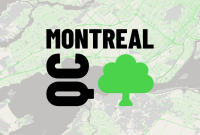Support strong Canadian climate journalism for 2025
More than 550 acres of marsh, grassland and forest are newly protected by the British Columbia government, but one environmental group says park expansion only goes so far in protecting the land that needs it most.
On Monday, the Ministry of Environment and Climate Change Strategy announced a $2.47-million expansion of seven parks and one protected area in the province. Cypress Park in West Vancouver and Edge Hills Park near Clinton are two of the regions the government says will see increased protection with the land purchase, which is an addition to 1,600 acres of land bought in January.
“Our parks and protected areas are rich with biodiversity and provide critical habitat for numerous species,” said Environment and Climate Change Strategy Minister George Heyman.
“By working with our partners, the ecological, recreational and cultural values of these unique and special places will be protected and enjoyed for years to come.”
But Shane Moffatt, the head of food and nature at Greenpeace Canada, says the news underscores where the province actually should be putting its efforts: Into concrete legislation that would protect and preserve biodiversity.
Moffatt points to Canada’s failed commitment under the UN Convention on Biological Diversity to protect 17 per cent of its land by 2020. According to the Canadian Parks and Wilderness Society, 13.1 per cent of land in Canada is currently protected. In B.C., that number is 14.4 per cent.
“What that means to me is that a big part of why Canada is not able to meet these critical biodiversity targets is because provincial governments like B.C. are dragging their heels and making a mountain out of a molehill with these really very spatially small protected areas,” said Moffatt.
Canada has since expanded its nature protection goal to 30 per cent of its land by 2030.
Although the purchase of these smaller spaces does protect and preserve some habitat, Moffatt says, they probably aren’t areas being saved from development or destruction. The North Shore News reported that one of the purchased areas is a lookout point on Cypress Mountain — a popular stop for tourists and locals looking for a scenic picnic or viewing spot, about a 30-minute drive from Vancouver.
Also part of the story is B.C. Premier John Horgan’s promise to implement a law that would protect endangered species in 2020. The NDP backpedalled on the proposed legislation in 2019, with no plans cited to retable it in the future.
Passing an endangered species law, along with the federal government protecting 30 per cent of land Canada-wide and B.C. stopping old-growth logging, would be moves towards biodiversity and protection, says Moffatt.
Ultimately, he says, B.C.’s latest land protection announcement should be taken with a grain of salt, and with the context of the current state of biodiversity and nature protection in Canada. In May, the country received a failing grade for its conservation efforts on a report card released by Ecojustice and the Wilderness Committee.
“It's good to protect these small spaces. It's also really important and potentially more important right now to be stopping the destruction of our ecosystems, or we're just running the water without plugging the sink,” he said.
“I think a really good example is that some forest ecologists are suggesting that if we don’t act really fast, the last old-growth forest will be gone in as little as five to 10 years. This announcement (Monday) of protecting a small area isn't going to do anything to change that.”






Comments
BC's goal is 17% and is currently at 14.4 - this is 85% of the goal. The current government has recently taken over 2000 acres out of private hands and into Park status. Can we give credit for steps in the right direction instead of condemning 'good' because it is not 'perfect'?